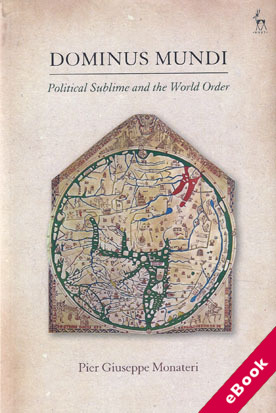
The device(s) you use to access the eBook content must be authorized with an Adobe ID before you download the product otherwise it will fail to register correctly.
For further information see https://www.wildy.com/ebook-formats
Once the order is confirmed an automated e-mail will be sent to you to allow you to download the eBook.
All eBooks are supplied firm sale and cannot be returned. If you believe there is a fault with your eBook then contact us on ebooks@wildy.com and we will help in resolving the issue. This does not affect your statutory rights.
This monograph makes a seminal contribution to existing literature on the importance of Roman law in the development of political thought in Europe.
In particular it examines the expression `dominus mundi', following it through the texts of the medieval jurists - the Glossators and Post-Glossators - up to the political thought of Hobbes. Understanding the concept of dominus mundi sheds light on how medieval jurists understood ownership of individual things; it is more complex than it might seem; and this book investigates these complexities.
The book also offers important new insights into Thomas Hobbes, especially with regard to the end of dominus mundi and the replacement by Leviathan. Finally, the book has important relevance for contemporary political theory.
With fading of political diversity Monateri argues "that the actual setting of globalisation represents the reappearance of the Ghost of the Dominus Mundi, a political refoule - repressed - a reappearance of its sublime nature, and a struggle to restore its universal legitimacy, and take its place." In making this argument, the book adds an important original vision to current debates in legal and political philosophy.